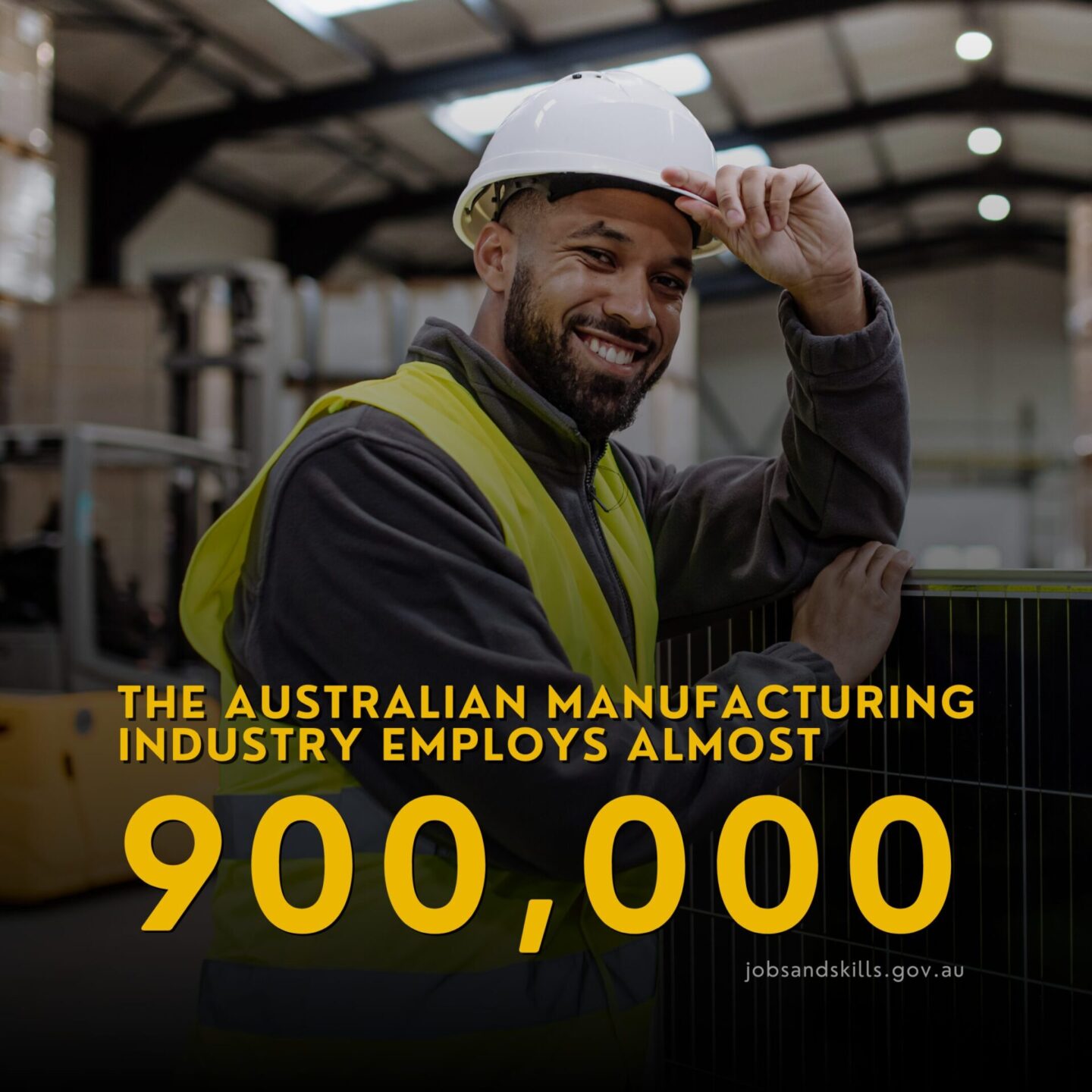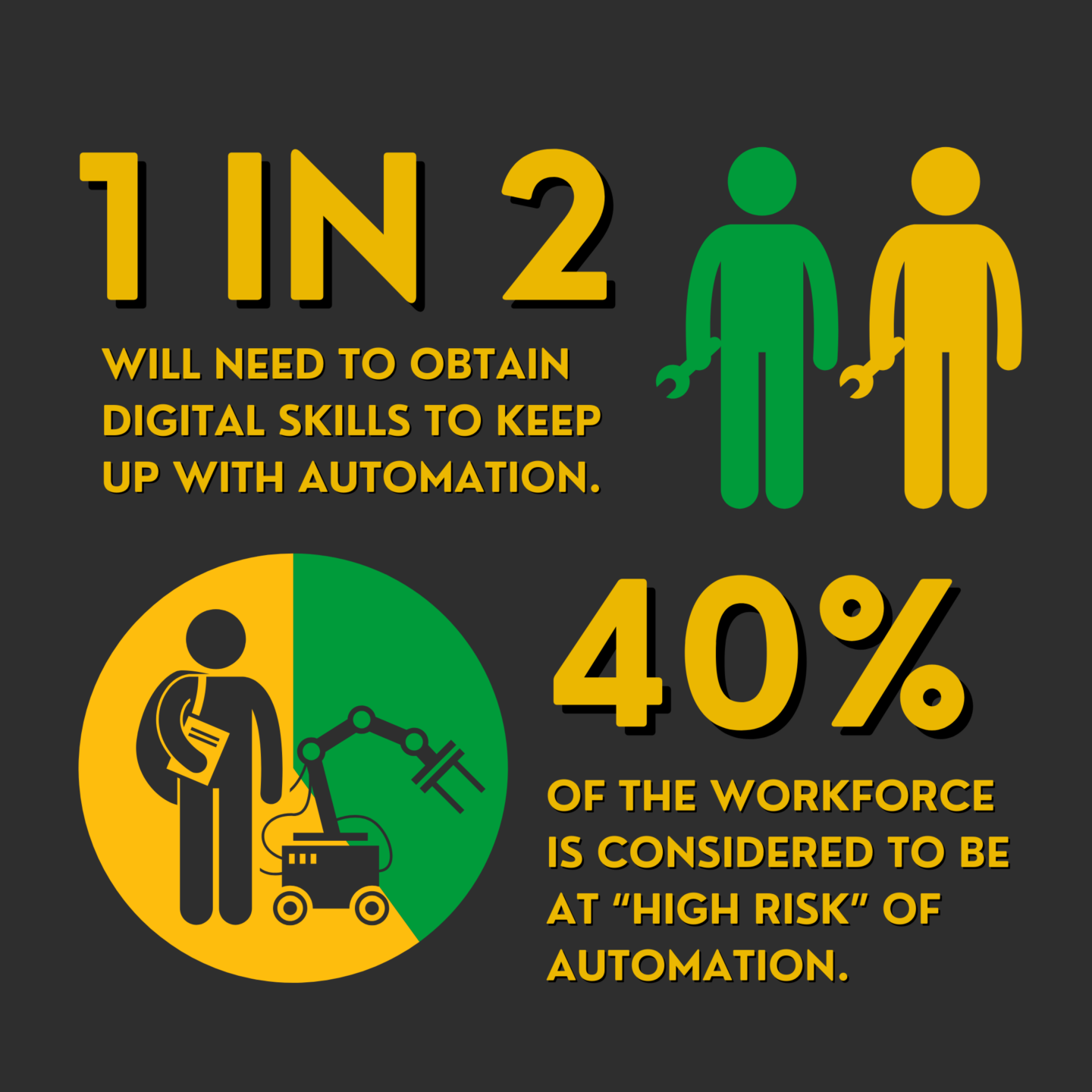It is officially 2025. Those born in the year 1995 will celebrate their 30th Birthday and it’s been 50 years since the Cricket World Cup made its debut.
A lot has changed in the last few years.
If you work in the manufacturing, mining, transport and logistics, or construction sectors, you may be lucky this year! With a growing skills-shortage and an increased focus on digital transformation, there is heightened demand for many skilled workers to join the industrial workforce.
If you are looking to enhance your career or join a new industry, now is a great time to make the jump and prepare for what’s coming next.
Here are 4 tips to prepare for industry change and enhance your career prospects:
1. There is a growing skills shortage.
Over the last few years, the labour force has grown significantly in many industry sectors; including warehousing, transport and logistics, and construction.
As the Australian population continues to grow, the need for new and improved infrastructure closely follows. Not only is there a need for trade technicians, professionals, and construction workers, but there is also a demand for specialists in the warehousing industry as product demand and supply goals need to be met.
Since the COVID 19 pandemic, the manufacturing industry has seen a small decline in employment potential. However, for specific roles including machine operators, forklift drivers, and delivery drivers, there is a noteworthy skills-shortage, which has led to an unprecedented demand.
Even with the recent dip in employment, Jobs and Skills Australia expects the manufacturing sector to grow by 16.3% (or 120,000 workers) by mid-2033.
There has also been an increased focus on upskilling. More employers are asking employees to obtain post-school certifications to assist them with technological transformation and labour demands. According to the National Skills Commission, more than 90% of new jobs are projected to require certain skills that can not be obtained without tertiary education or training.
2. There is an increased focus on AI.
The rising adoption of Artificial Intelligence (AI) is not expected to slow down anytime soon. The benefits of implementing AI systems into production-focused industries is instrumental, enabling businesses to operate more efficiently, intelligently, and flexibly. However, there is a growing concern that with the adoption of new technology, we will experience a drop in employment opportunities for workers who have little to no tertiary education.
To boost employment potential, there has been a recent push for workers to upskill in engineering and machine operation, as the demand for these qualifications continues to rise in the manufacturing, transport and logistics, and warehousing sectors.
So, Why use AI?
AI is a powerful tool that can interpret large volumes of data to improve operational efficiency. When the technology is understood, successfully implemented, and used effectively, digital tools can reduce the risk of human error which can cause workplace hazards and injury. Production line failures can also be a significant financial loss for businesses.
Some types of AI are also conscious of machine wear and tear, which can predict the need for future maintenance. By keeping on top of machine maintenance, businesses can reduce production delays and increase workplace safety.
For job seekers looking for work in manufacturing, upskilling as a maintenance fitter and getting the appropriate certifications in this field can boost job longevity and employment potential in the industry.
3. There is emphasis on workplace culture.
Corporate culture is not a newly coined term, and the Australian workforce is continuing to evolve and diversify. As a result, there is an increased desire to promote workplace inclusivity, demonstrate corporate responsibility, and showcase a sustainable organisational culture.
Employees expect more from their jobs.
22% of employees consider their wellbeing to be more important than anything else, including income. Workers want healthier work environments that offer better support systems and offer learning opportunities.
Job flexibility, work-life balance, and having strong relationships with coworkers, are also reported to be major drivers towards workplace positivity. Not only this but working in a connected and team-focused environment can decrease the number of workplace incidents and staff turnover.
4. There will be more regional opportunities.
According to Jobs and Skills Australia, employment is projected to increase in all states and territories. In our capital cities, employment was predicted to grow by 8.4% between 2020-2025. In regional areas, employment projections indicated a 6.2% increase within this same timeframe.
Regional cities and suburbs have become prime locations for job seekers who work in the transport and logistics, mining, or healthcare sectors. Mining and industrial roles are predicted to mature in Western Australia and Queensland.
If you are looking for a new role, it may be worth considering roles in regional areas or outside the central business district. The cost of living may also be lower for those who live and work outside metropolitan areas.

In Summary:
As we enter 2025, it’s important to focus on the future of work and prepare for industry change in the best way possible.
In 2025, projections suggest that the demand for skilled, adaptable blue-collar workers will be greater than ever. By investing in upskilling, embracing technology, promoting a positive workplace, and considering regional opportunities, you can better prepare for the next stage of your career journey.
Looking for work?
Are you a job seeker looking for casual, part-time, full-time employment or a permanent position? We’re here to help you find the perfect job. Our dedicated team is committed to connecting you with opportunities that match your skills and aspirations. We would love to hear from you! The first step is to register your details. For further information, find your local office or give us a call at 1300 178 233.
Looking to hire staff?
If you’re an employer looking for temporary, part-time, full-time, casual or permanent staff, let’s find out how we can assist you. Our experienced Account Managers are ready to understand your needs and provide the best solutions.
Submit an enquiry and one of our Account Managers will be in touch shortly.




